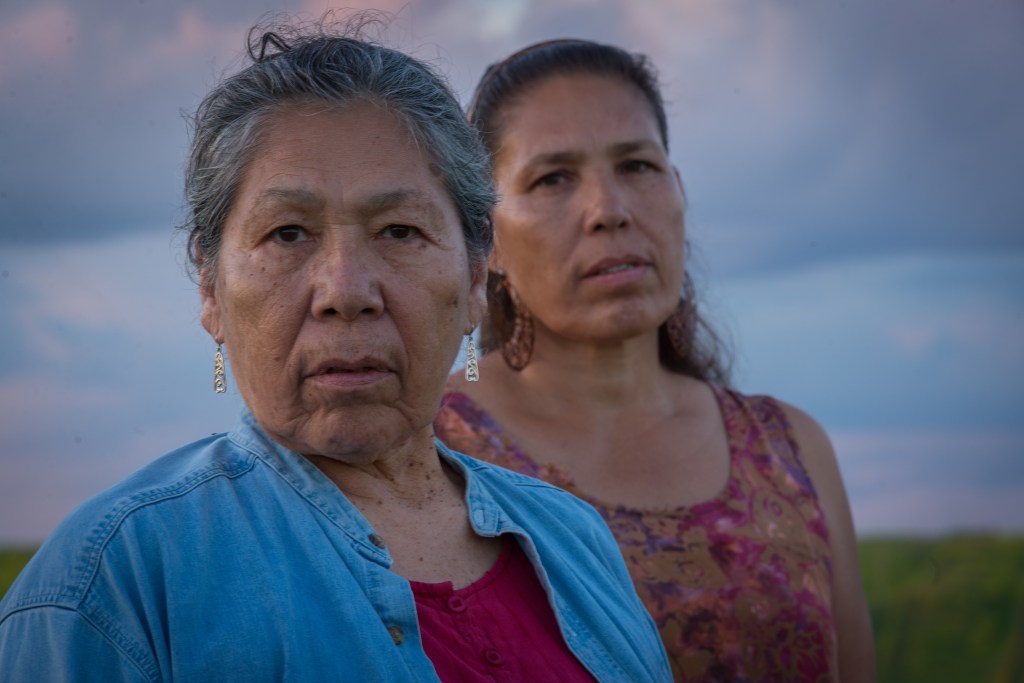Movie review: ‘Warrior Women’
Published 2:15 am Thursday, October 8, 2020

- Madonna Thunder Hawk, left, and Marcella Gilbert in a still from "Warrior Women."
Madonna Thunder Hawk is an impressive woman and one you probably haven’t heard of, though you should have.
The Oohenumpa Lakota activist’s life and work along with daughter Marcella Gilbert’s are recounted and celebrated in “Warrior Women,” a documentary directed by Christina D. King and Elizabeth A. Castle.
Using historical footage, interviews and a round-table discussion with Thunder Hawk, Gilbert and others, the documentary weaves together the women’s activism and continually juxtaposes their history with the work they continue to fight for.
Early in the film, we hear Chase Iron Eyes from the Lakota People’s Law Project introducing Thunder Hawk at an event say, “When you want good words, invite the men. But if you want something to get done, bring the women.” In that spirit, the whole film progresses.
You’re never left not knowing the context or significance of the events in Thunder Hawk and Gilbert’s lives, but you’re also not bogged down in the lengthy details of them. The documentary keeps its focus on its subjects and runs smoothly from one beat to the next with wonderful editing from Keiko Deguchi and Kristen Nutile.
The film covers ground from Thunder Hawk’s birth in 1940 on the Yankton Sioux Reservation in southern South Dakota to growing up along the Missouri River and having to uproot when the river was dammed and the community was forced to move away from the water.
It then moves quickly to the roots of her activism, when she was taken to boarding schools built to give Native American children essentially a white education, and then to more distinct acts of protest and promotion and preservation of her people’s heritage by forming her own “Survival School” for her own children and others to teach them about natural resources, Native American rights and spirituality.
Becoming involved with the American Indian Movement in the 1960s brought Thunder Hawk to demonstrations throughout the country including the occupation of Alcatraz in 1969-71, the Wounded Knee Incident in 1973, and 2016, when she joined the movement at Standing Rock protesting the construction of the Dakota Access Pipeline and her continued work with the Lakota People’s Law Project.
These key events are only the tip of her illustrious career of activism, much of it sparking her daughter’s own work.
The film shines a very bright light on Thunder Hawk, touching on how her and her daughter’s work made them more partners in movements rather than typically familial, a cycle that Gilbert has tried to break with her own children.
The light may not shine as brightly on Gilbert, but that’s the point. Thunder Hawk is akin to the matriarch of these Warrior Women the documentary highlights, and it feels right that she should get the recognition for it and the work that is continuing because of her influence on the younger generations.
Never too preachy, the documentary tells the story of heavy-hitting discussion of events in modern Native American activism and gives them easy access for those with little or no knowledge of the subjects at hand. The presence of the kind of roundtable between the women depicted gives some levity to otherwise serious incidents. It’s their history, and they are telling it how they remember, through jokes and fond remembrances, not a stuffy textbook-style recounting.
The film as a whole covers a lot of ground but is kept rooted to just one woman and the part she has played, and continues to play, alongside her daughter in the work that is still to be done.
“Warrior Women”
64 minutes
Rating: No MPAA rating
4 stars






